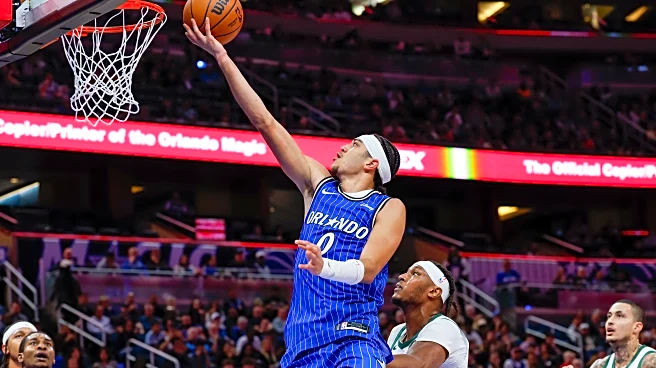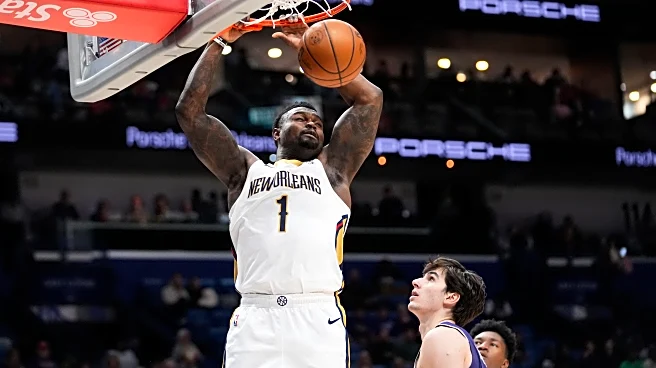What is the story about?
What's Happening?
The National Hockey League (NHL) is preparing for the 2028 World Cup of Hockey, which is expected to feature eight participating countries. According to David Pagnotta of The Fourth Period, the tournament will include preliminary games hosted in one European city and one North American city, with the semifinals and finals taking place in another North American city. The anticipated participating countries include Canada, the USA, Sweden, Finland, Czechia, Slovakia, Switzerland, and Germany. The selection of host cities is still under speculation, with potential candidates being Vancouver for Group A, Stockholm for Group B, and New York City for the semifinals and finals. The choice of Stockholm is attributed to its central location and the capacity of the Avicii Arena, which can accommodate 14,000 spectators. The NHL's decision to bring back the World Cup of Hockey is part of a broader strategy to reintroduce best-on-best international hockey competitions.
Why It's Important?
The return of the World Cup of Hockey is significant for the international sports community, particularly for hockey fans who have been eager for the revival of best-on-best tournaments. This event provides an opportunity for the NHL to showcase its players on a global stage, potentially increasing the league's international fan base and market reach. Hosting games in both Europe and North America allows for greater accessibility and engagement from diverse audiences. Economically, the event could boost tourism and local economies in the host cities, as fans travel to attend the games. Additionally, the tournament may influence future international hockey events, setting a precedent for collaboration between the NHL and international hockey federations.
What's Next?
As the 2028 World Cup of Hockey approaches, the NHL will need to finalize the selection of host cities and confirm the participating countries. This process will involve negotiations with local governments and sports authorities to ensure the necessary infrastructure and support are in place. The league will also focus on marketing and promotional efforts to build anticipation and secure sponsorships. Stakeholders, including national hockey federations and players, will likely engage in discussions to address any logistical or competitive concerns. The success of the tournament could pave the way for future international hockey events, potentially influencing the NHL's participation in the Winter Olympics and other global competitions.
Beyond the Headlines
The revival of the World Cup of Hockey raises questions about the NHL's long-term strategy for international competitions. The league's decision to host games in both Europe and North America reflects a commitment to expanding its global presence. This move could lead to increased collaboration with international hockey organizations and a reevaluation of the NHL's role in the Winter Olympics. Additionally, the tournament may impact player negotiations and contracts, as participation in international events can affect player schedules and health. The NHL's approach to the World Cup of Hockey could serve as a model for other sports leagues seeking to enhance their international appeal.
















